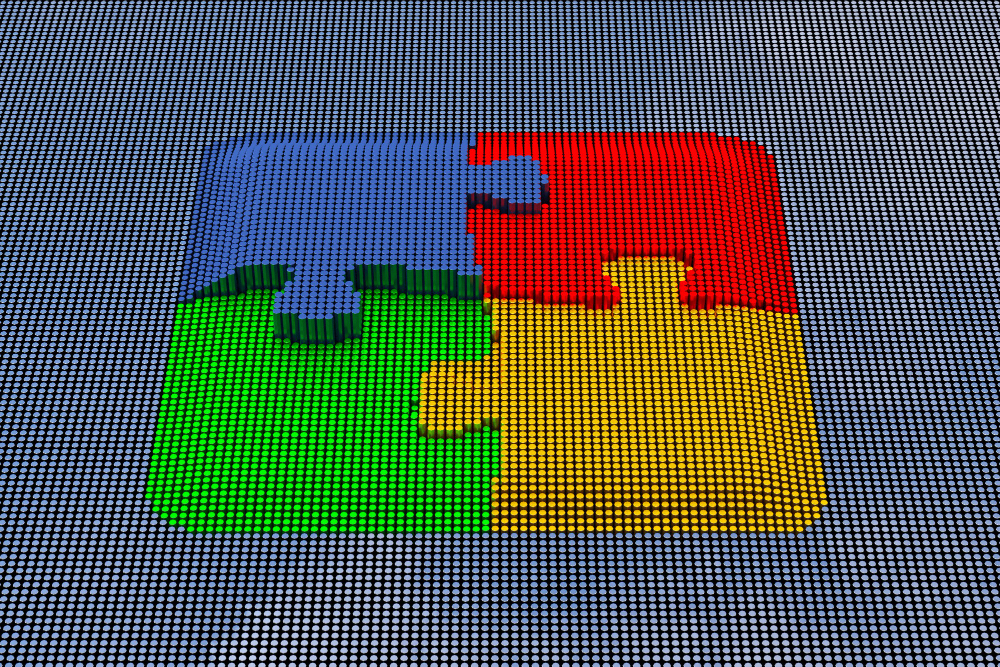- Science lessons are very engaging.
- Learning is student-centric.
- It is a highly affordable science curriculum.
- It promotes hands-on activities and flexible learning in the classroom.
- There are no progress-tracking functions.
- The videos on it are not very dynamic and interesting.
- Khan Academy How Can Khan Academy Enhance Your Teaching? Discover Personalized Learning Tools!
- Mel Science How to Make Science Fun and Engaging for Kids and Teenagers?
- Abcya Animate Spark Curiosity & Make Learning Fun: Play ABCya’s Engaging Educational Games
- Nearpod Nearpod: Your All-in-One Classroom Toolkit – Interactive Lessons, Videos, Games, & More
- CoolMindMaps What are Mind Maps? Free Mind Mapping AI Tool for Students!
- Learnt Learnt AI Review- Create Courses and Projects Within Seconds!
- LearnEnglish Kids Boost Your Child’s English Skills with LearnEnglish Kids: Free Games, Songs, and Stories
- Class Point How to Effectively Use PowerPoint Presentation Slides in the 21st Century Classroom?
- STEM Prepare Students for STEM Careers with Industry-Aligned Resources and Internships!
- Toontastic 3D Storytelling Made Fun: Animate Anything with Toontastic 3D in Minutes!
- Reading Eggs Can Playing Games Unlock Reading Skills? Discover the Reading Eggs Magic!
- Storybooks Empower Young Readers: Storybooks Makes Reading Fun & Addresses Complex Emotions
- Joy Schooler Understanding Discovery Learning and Its Benefits in Education
- Khan Academy Kids Is Khan Academy Kids Suitable for Your Child?
- Teddy AI Teddy AI: Best AI Study Buddy for Neurodiverse Kids
- SciPricSam How To Teach Science through Digital Simulations?
- FreeSchool Discover FreeSchool: A Safe YouTube Channel for Kids to Explore Art, Music, Literature, and Science
- Kahoot Kahoot: Where Learning Meets Fun. Play Your Way to Success!
- Exploratorium Hands-On Learning: How Exploratorium Transforms Education with Art and Science
- Flickcall Flickcall: The Tool for Interactive Video-Based Learning
- IELTS Writing IELTS Writing Pro Review: Features, Benefits, and Limitations Explained
- Socratic Google AI Socratic Google AI Review- Features, Tutorial & More
- Wolfram Alpha How Wolfram Alpha Solves Complex Maths Problems with Ease
- Puzzicle Puzzicle- Build a Lesson with the help of AI
Table of Contents
Bayer Corporation states that only 7 percent of deans are confident that their K-5 students are getting quality science education. But, 56 percent say that their elementary kids are not getting enough science education. It is because 71 percent of teachers don't feel confident in teaching science to elementary kids. They are more confident in teaching math and English than in science. In this situation, what can educators do?
To help them, the Mystery Science organization launched a website in 2011. It is now owned by Discovery Education as it has become popular among elementary teachers and homeschooling parents to teach science concepts. What is this website about? Let's discuss it in this blog.
What is Mystery Science?
It is a website that contains captivating, multimedia and interactive science lessons for K-5 students. Educators designed it by keeping in mind ways to captivate young minds and teach them science lessons effectively. It reduces the preparation time for homeschooling parents and elementary teachers so that they can focus on other aspects of teaching.
You can find various mini-courses on this platform that are focused on specific science concepts. It provides quick learning sessions to students with hands-on activities and interactive discussions. With it, it also contains full, multi-week units that explore specific content deeply. These units and courses have interactive videos where an educator is sitting and teaching kids about specific topics. These videos contain quizzes and interactive discussions. These courses also have worksheets, practical assignments, reading material and many more.
Mini-courses are not specific for any grade and age so any student from K-5 can take these courses. They are mostly 2-5 minute long videos with interactive discussion and multimedia content. But, the full courses are grade-specified. Elementary teachers will see grade-specific courses for their students while homeschool parents will see age-specified science courses for their kids. These courses can replace the official curriculum for elementary students to a large extent.
How Mystery Science Works?
It is a web-based platform that parents or teachers can access from any device they are using. They need to subscribe to this platform and create an account after it. In this account, they will see different age groups or grade levels. They have to select the group in which their kids fall.
Once they are inside any specific group or level, they will see a variety of full science courses on specific units. They can select any unit they want as they don't need to follow any specific sequence. Once they select a course, they will enter into a lesson page.
The lesson page contains all the information teachers or parents need. It includes the length of the lesson, its objectives, a material list, and what students will learn in this lesson. The best thing here is that parents can add the number of students they are teaching this course to. In this way, it will automatically set the quantity of material list, saving the user from doing math.
Each lesson or mini-course contains three major aspects: interactive videos, a hands-on activity and some optional lesson extensions. Let's discuss them in detail.
Video Exploration
The lesson starts with a video. It is usually a 2-5 minute long video that has a narrator explaining the science concepts in detail. The video has various multimedia elements such as animations, scenes from games or movies and relevant pictures. It also contains various interactive questions that students and teachers should discuss with each other. Sometimes, videos will pause automatically and sometimes you have to pause them manually when any question comes up. After this video, there will be another one explaining the answer to the question in detail.
Hands-on Activities
These videos also have some hands-on activities that students have to do with the narrator. These activities are linked to the main topic they are learning and incorporated into main videos so that students can relate their learning to the real world. Some examples of activities are creating paper mountains, making volcanoes from kitchen items and many more. These activities mostly need kitchen or household items so they are not expensive. You can find the list of material in the lesson page.
Extensions
If parents or teachers want to deepen the understanding of their students, they can accommodate the extensive material Mystery Science offers with the lesson. This material can be of various types such as videos, reading material, transcripts of video lessons, discussion questions, quizzes and much more. It can vary from course to course. These extensive materials can be on Mystery Science or can be from any third party such as YouTube, educational websites, surveys or gaming apps.
Key Features of Mystery Science
Top Quality Science Lessons: Science lessons are NGSS standards-aligned so they introduce all the relevant science concepts and vocabulary one might expect from a science subject. So, it has top-notch science content.
Accessible: The lessons are available in English and Spanish language which are closed-captioned and transcribed. So, ESL learners and students with hearing difficulties can benefit from it.
Easy to Open: Parents can log in to this website from anywhere or from any device they want. But, they need a stable internet to access it. For this, Mystery Science has introduced the feature of downloading video in the device cache. It means that the video will be loaded and open in another tab. So, if the internet goes down while your kid is watching videos or if you want to disconnect the internet while your kid is learning, you can easily do it through this feature.
Student-centered Learning: Like different e-learning platforms, this website also focuses on student-centered learning. For this, they have introduced interactive quizzes, assignments, assessments and discussions in the videos. This discussion develops critical thinking in students and makes the learning process fun and easy to understand.
Alternatives of Mystery Science
Though Mystery Science has a lot of features, it has a few drawbacks too such as generic video content and lack of analytics. So, you may want to know some alternatives to it.
Generation Genius
Generation Genius was founded in 2018. It is also a video-centered learning platform that has math and science lessons for students. These lessons aligned with NGSS and Common Core Standards. Moreover, it aims for students from K-8, teaching students science and math concepts from kindergarten to middle school. So, it covers more scope of STEM than Mystery Science.
Khan Academy
Khan Academy has a variety of courses on different topics for different age groups. You can find lessons on science, English, Maths and other subjects on this platform with ease. Teachers can use it to assign different tasks and assignments to students to ensure personalized and continuous learning. There are different assessment tools such as quiz generation on this platform too that enable students to assess their learning and prepare for exams.
PBS Kids Website
This website has a lot of science games, courses, lessons, activities and material for kids to learn while having fun. The videos on this website focus on songs, activities, lessons, clips and full episodes covering various STEM concepts. It has printable activities that parents can print for their kids to solve. It has games and quizzes that are relevant to science concepts. In this way, it teaches science through gamification aspects.
Conclusion
In short, Mystery Science is a fun and innovative website to make your kindergarten and elementary kids a scientist. It covers various topics so it is ideal for homeschooling parents. Teachers can also make it a part of the classroom learning so that students can get more involved in the learning process. Multimedia and technology in the classroom can retain their attention and enhance their learning. So, homeschool parents, children and teachers should give this website a chance.

































Comments are closed.